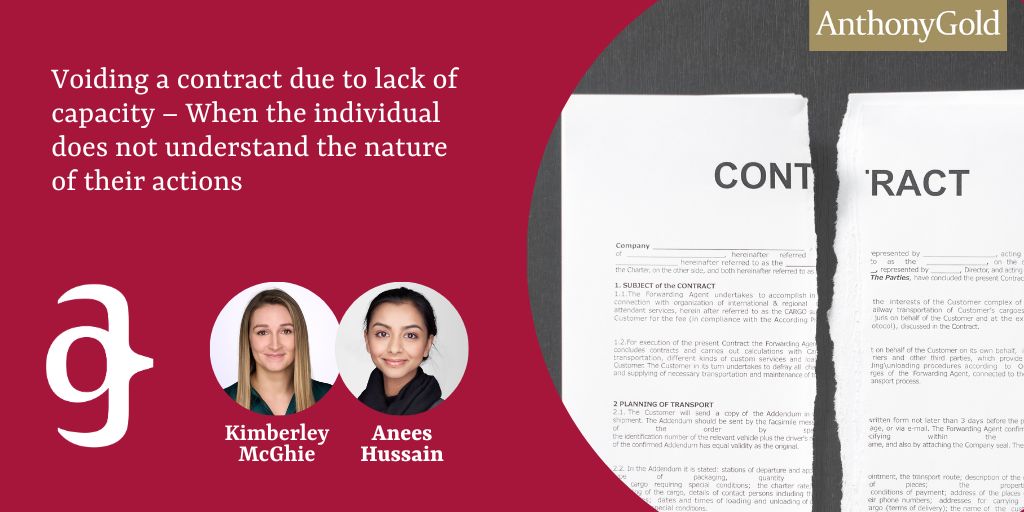Voiding a contract due to lack of capacity – When the individual does not understand the nature of their actions

In the realm of contract law, there is a presumption that everyone can contract. However, there are circumstances in which this presumption can be challenged, such as if a person did not have capacity. My colleague, Kimberley McGhie, expands on this in her recent blog, which you can access here.
The landmark case of Imperial Loan Co Ltd v Stone [1892] 1 QB 599, established criteria for proving a lack of mental capacity. For a contract to be voidable, the party lacking capacity must prove two key elements:
a) Their incapacity meant they did not understand the nature of their actions; and
b) The other party was aware of the incapacity.
In this blog I will examine issue (a) in more detail.
At common law, there is no fixed standard to determine mental capacity. Instead, it is necessary in each case that the individual should possess a general understanding of the nature of what they are doing. Courts will often rely on the test for mental capacity under the Mental Capacity Act 2005 to establish this, but each case will turn on its own facts.
In the case of Dunhill v Burgin [2014] UKSC 18, the Claimant suffered a traumatic brain injury during a road accident, and lacked capacity to conduct proceedings, although this was not confirmed at the time. Without a litigation friend being appointed to act on her behalf, she issued proceedings against the road user who had injured her. Unfortunately, she was convinced to settle the claim at a gross undervalue. The issue was considered by the Supreme Court, which held that the Claimant had lacked capacity and should have had a litigation friend from the outset, and the settlement should have received court approval under CPR 21.10(1). The settlement was set aside on that basis, and the Court ruled that the case should go to trial.
In this case, even though the Claimant’s lack of capacity was unknown to anyone acting for either party at the time, the Supreme Court set aside the consent order and ordered that the case should go to trial. This demonstrates the cautious approach taken by the Courts when considering whether a person understood the true nature of their actions. It also highlights the mechanisms available within the CPR to protect vulnerable parties in proceedings.
At Anthony Gold, we have been instructed to act in many cases involving vulnerable and elderly individuals lacking the requisite capacity to enter into a contract. Our commitment to protecting the vulnerable is not only a professional duty but also reflected in our sponsorship of Hourglass, a charity dedicated to safeguarding vulnerable individuals. If you would like our advice on capacity to enter into a contract, please contact the Civil Litigation Team at Anthony Gold by email at mail@anthonygold.co.uk or call us on 020 7940 4060.
* Disclaimer: The information on the Anthony Gold website is for general information only and reflects the position at the date of publication. It does not constitute legal advice and should not be treated as such. It is provided without any representations or warranties, express or implied.*
No comments